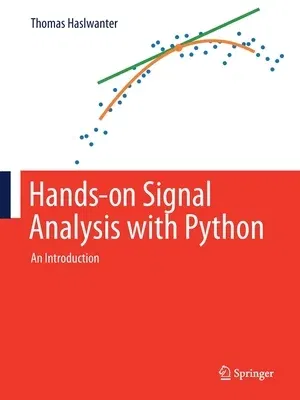This book provides the tools for analyzing data in Python: different
types of filters are introduced and explained, such as FIR-, IIR- and
morphological filters, as well as their application to one- and
two-dimensional data. The required mathematics are kept to a minimum,
and numerous examples and working Python programs are included for a
quick start. The goal of the book is to enable also novice users to
choose appropriate methods and to complete real-world tasks such as
differentiation, integration, and smoothing of time series, or simple
edge detection in images. An introductory section provides help and tips
for getting Python installed and configured on your computer. More
advanced chapters provide a practical introduction to the Fourier
transform and its applications such as sound processing, as well as to
the solution of equations of motion with the Laplace transform. A brief
excursion into machine learning shows the powerful tools that are
available with Python. This book also provides tips for an efficient
programming work flow: from the use of a debugger for finding mistakes,
code-versioning with git to avoid the loss of working programs, to the
construction of graphical user interfaces (GUIs) for the visualization
of data. Working, well-documented Python solutions are included for all
exercises, and IPython/Jupyter notebooks provide additional help to get
people started and outlooks for the interested reader.

